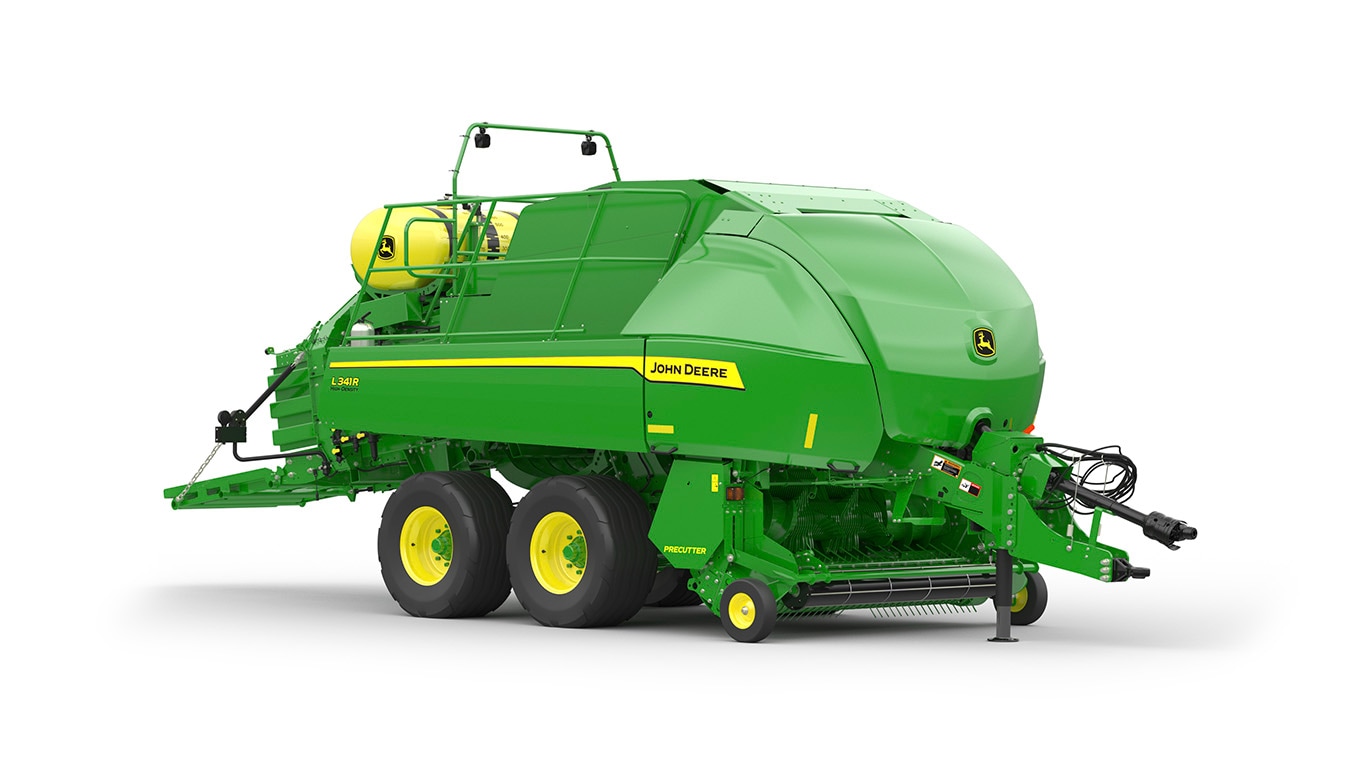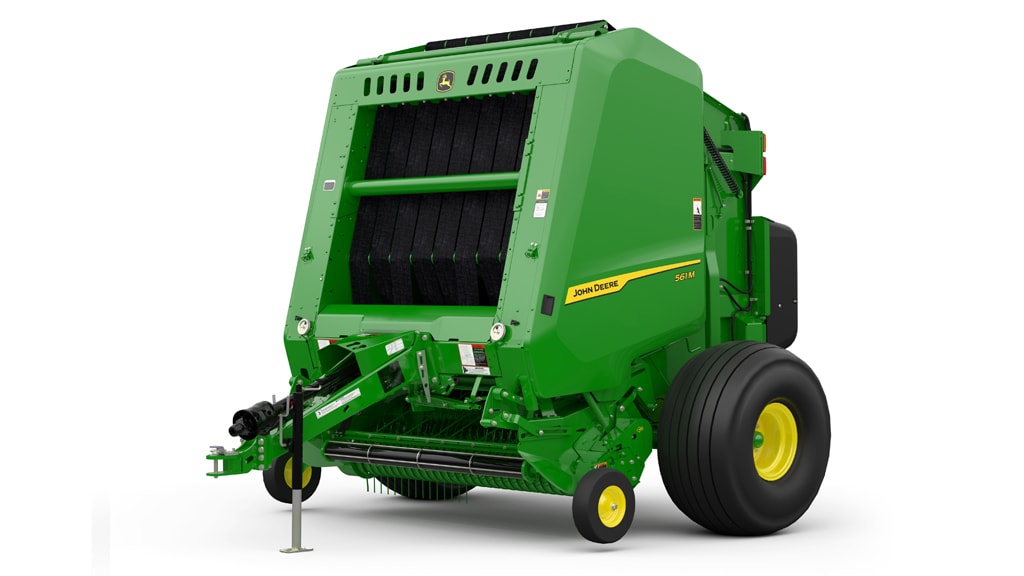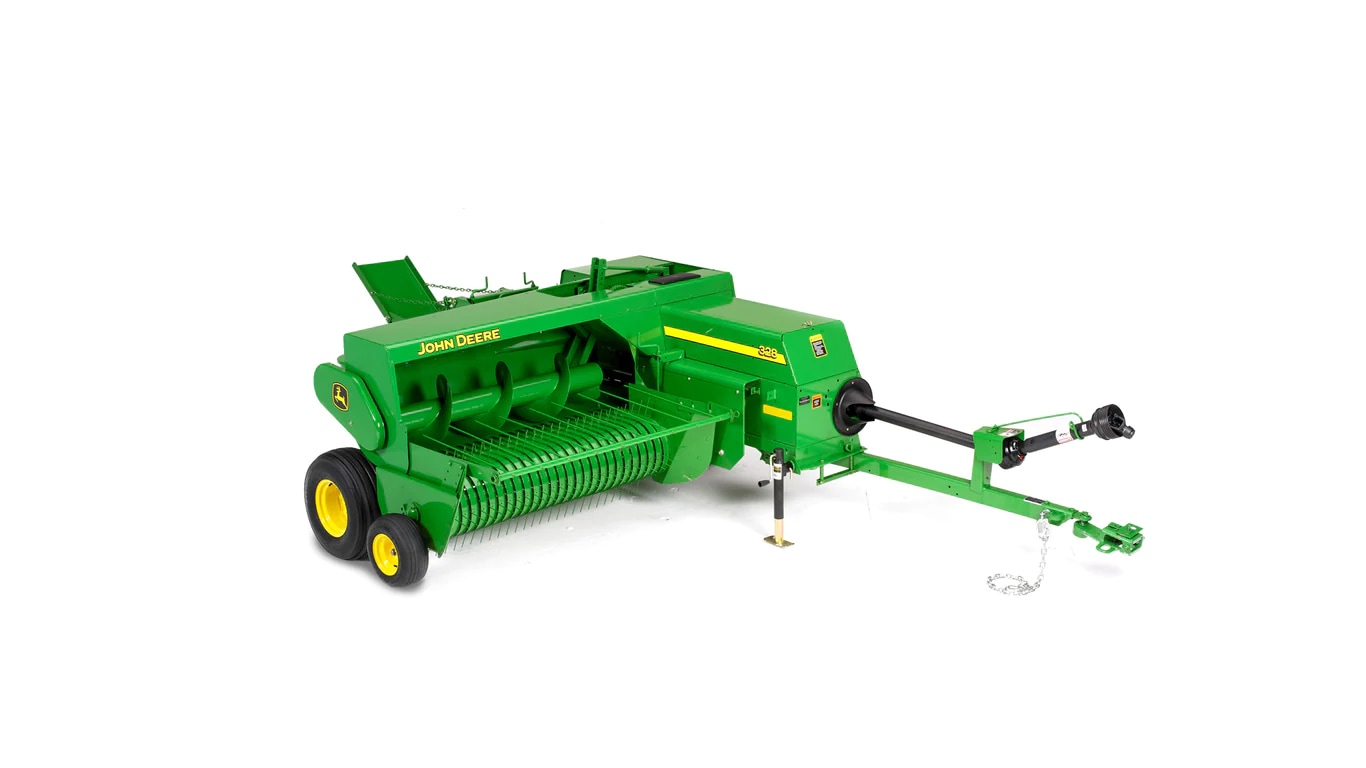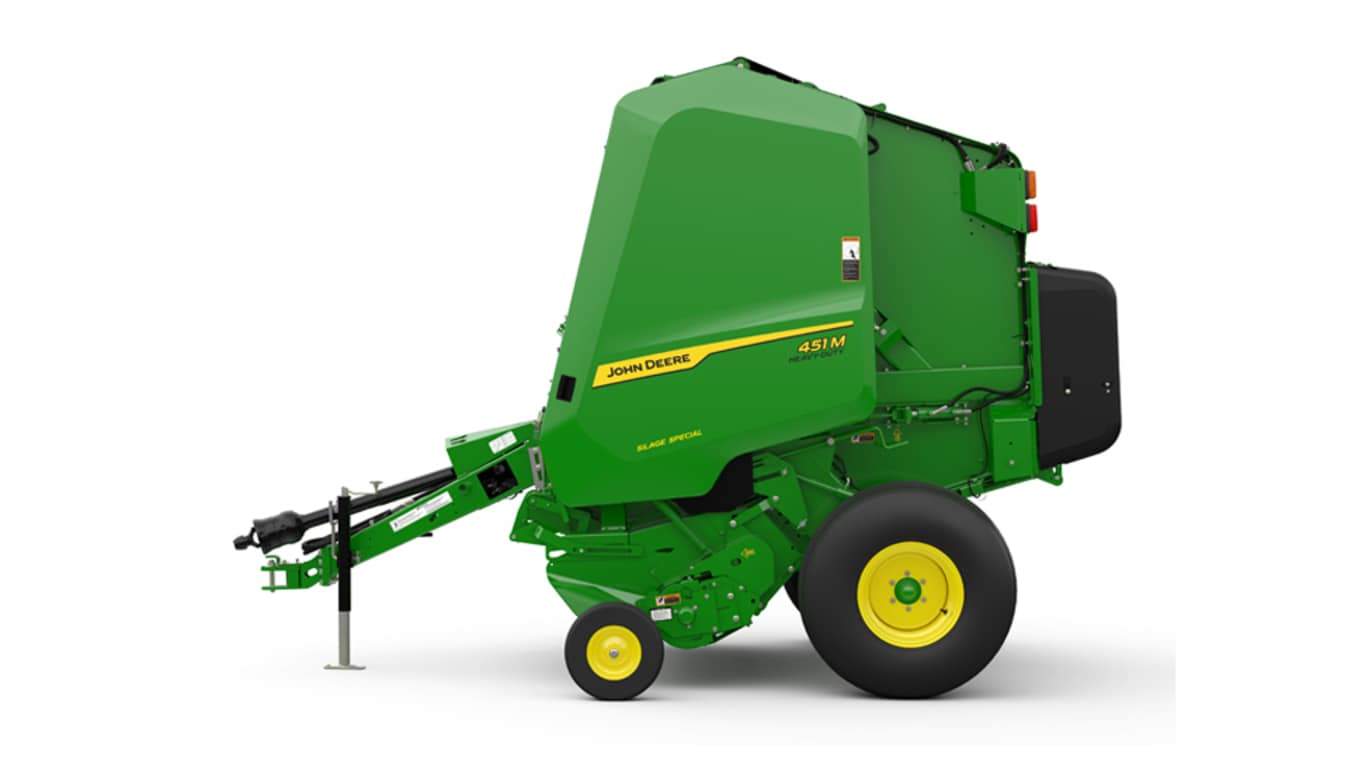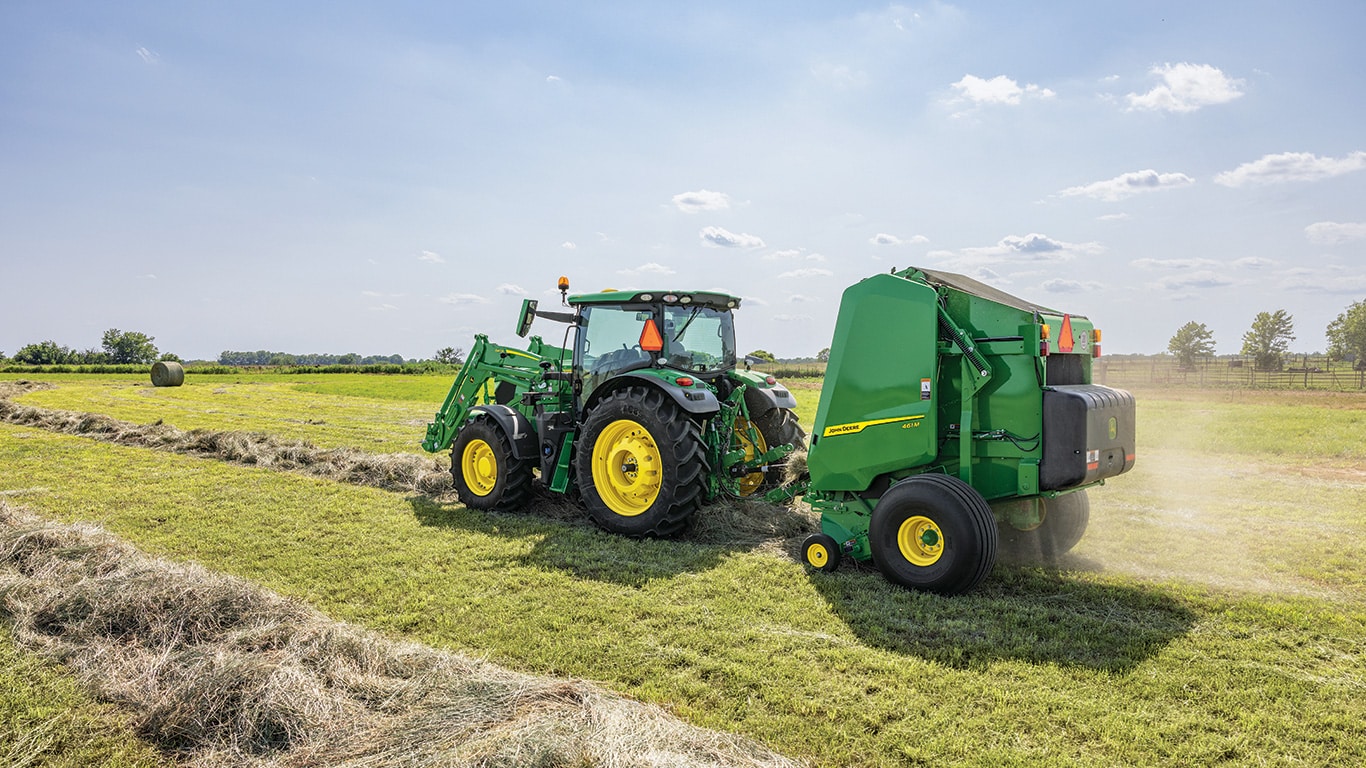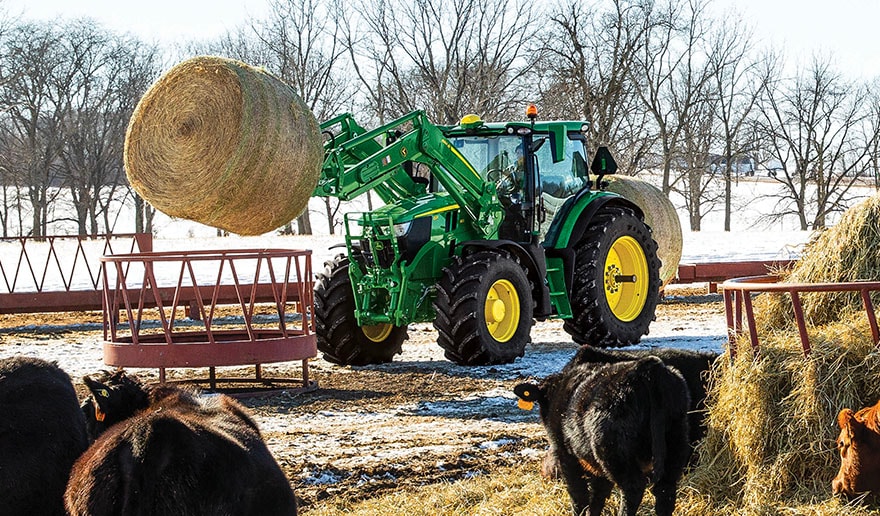
Hay and Forage Baling Equipment

L341R High-Density Large Square Baler
When your operation is all about the cow and you want to provide better nutrition for your herd by analyzing bale weights and moisture cutting after cutting, year after year to improve field performance, then we have the right choice for you.
Being Square.
When it comes to hay, timing is everything. You need a baler that you can depend on to get the job done right the first time. Built and engineered in Ottumwa, Iowa, our large square balers feature a wide pickup, a moisture and weight sensor that measures levels flake by flake and the convenience and reliability of BalerAssist™ to easily clear plugs from the cab.
Bale Documentation with John Deere Operations Center™
Cutting after cutting, year after year, analyze the agronomic performance of your hay with documentation.
High Density Bales
Save time and money1 when you increase bale weight by 30 percent.
Moisture Sensor
Monitor bale weight and moisture throughout the entire baling process to make real time decisions.
Round After Round
Whether you're working with dry hay, high moisture or silage, our round balers are designed to meet the demands of your operation. From our economical E models to the feature-packed R models, we engineered a family of round balers ready to fit your needs.
MegaWide™ HC² System
Smaller, more nutritious pieces makes for a happier herd and less waste.
DiamondTough™ Belts
Get the strength and durability you need for handling heavy loads with the DiamondTough Belts.
Surface Wrap Packaging
Make more bales, reduce leaf loss and shed water better using Edge-to-Edge, CoverEdge™ or B-wrap covering.
Bale Documentation with John Deere Operations Center™
It takes data to make informed decisions. And with documentation, you have the ability to analyze yield trends and nutrient replenishment cutting after cutting, year after year with the John Deere Operations Center™.
Need Help Choosing a Baler?
Not sure which baler is right for your operation? Let us help you chose with the Baler Product Selector tool.
Your Animals. Our Solutions.
Keeping your animals healthy and productive is your top priority. Helping you do it is ours. As a dairy farmer or rancher, you have many challenges to keep your herd healthy and productive. But you’re not alone. We stand ready to help.
1Based on fuel savings of baling and transporting fewer high-density bales (weighing an average of approximately 1,200 lbs.) versus more standard bales (weighing an average of approximately 925 lbs.).
